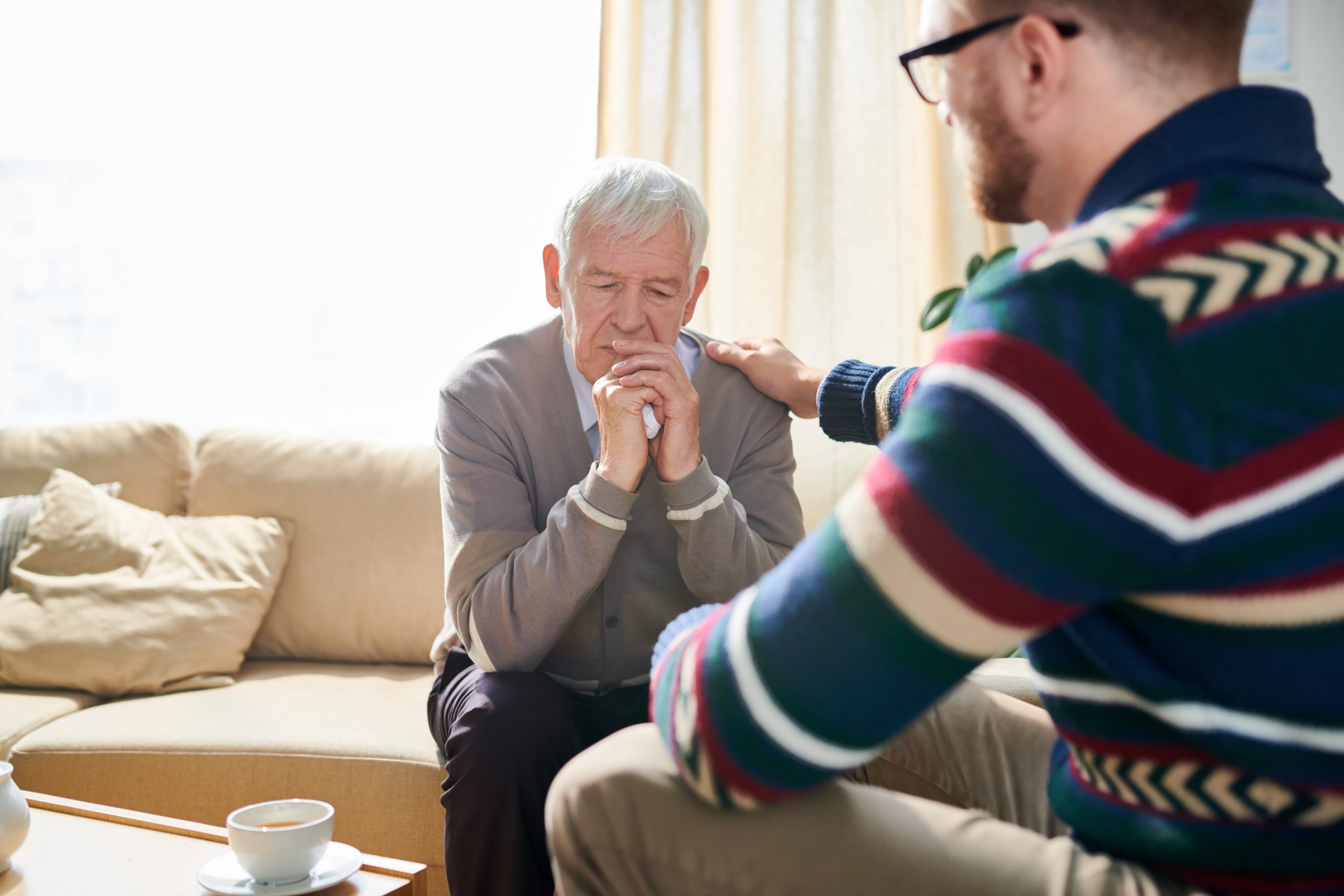Marcy Kiger is only one of many at Emmanuel Hospice who can attest to the importance of caring not only for patients receiving hospice care, but friends and loved ones on the journey with them.
“Right from the start, we like to emphasize that we’re here to care for anyone else who needs the support, because grief is not an isolated experience,” she says. “It grows roots and spreads, and everybody deals with it differently. By opening the door, folks are able to take that first step.”
As a social worker with Emmanuel, Kiger has noticed that especially in the Midwest, people can be more stoic than elsewhere, and that grief and loss aren’t easy topics to broach and discuss.
“So, we tell folks they’re the drivers of the bus, and we are the wheels,” Kiger says. “We’ll go as fast as they want.”
Kiger shares that friends and family of people in hospice care are sometimes surprised to hear a clinician or therapist turn to them and ask, “What about you? How are you doing?”
In asking just that, a pause often surfaces during which they can “recalibrate their brain and allow them to be OK with dwelling on whether they’re struggling with the journey.
“It’s real important for us to check in on them to make sure they’re having those moments,” she says, “and even if they’re brief, it’s important to know where they are and how they’re doing.”
Some tips for loved ones dealing with an impending loss? First, be brave enough to admit you’re having a tough time, because acknowledging it is a big first step.
Second, if you need to talk, seek out a good listener. Emmanuel’s staff is trained to meet you where you are, and help you cope with virtually anything. The nonprofit offers bereavement counseling for up to 13 months after a patient passes.
“That one-year anniversary can bring up a lot of feelings,” Kiger says.
At Emmanuel, caring for people surrounding the patient begins almost immediately.
“We assess the bereavement needs of family members,” Kiger says, “and then we might suggest it would be beneficial to talk with someone on our team if they’d like to do that.”
Kiger and her colleagues pay attention to a lot of factors and also look for clues that will help them counsel friends and family.
“We consider how close they are to the patient, if they have kids, if they are working full time and whether there have been any other deaths or traumatic events in the family lately. All of that might figure into their stress level.”
Dealing with feelings can be tougher on some than others, but Kiger says being open and honest about what you’re experiencing can help you move forward.
“Sometimes, we’re dealing with years and years of learning what is right and what is wrong to express,” she says. “To help them with their struggle, at least we can point out those different doors to consider.”
Emmanuel Hospice’s grief support services are open to anyone in the community on a grief journey regardless of whether they have a prior connection with the nonprofit organization or hospice care. More information is available at EmmanuelHospice.org/grief-support.
# # #
